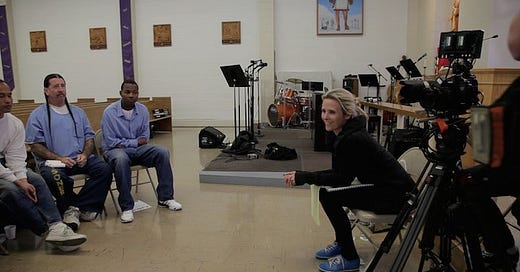Jennifer Siebel Newsom on ‘The Mask You Live In’ and Getting Jocks to Watch the Doc

Jennifer Siebel Newsom doesn’t direct standalone documentaries so much as she makes starting points for ongoing cultural conversations. Four years after Miss Representation premiered at Sundance, the film still has a strong social media presence, generating discussion about how women are portrayed in the media.
Now, she’s come back to Sundance with a doc…
Keep reading with a 7-day free trial
Subscribe to Nonfics to keep reading this post and get 7 days of free access to the full post archives.



